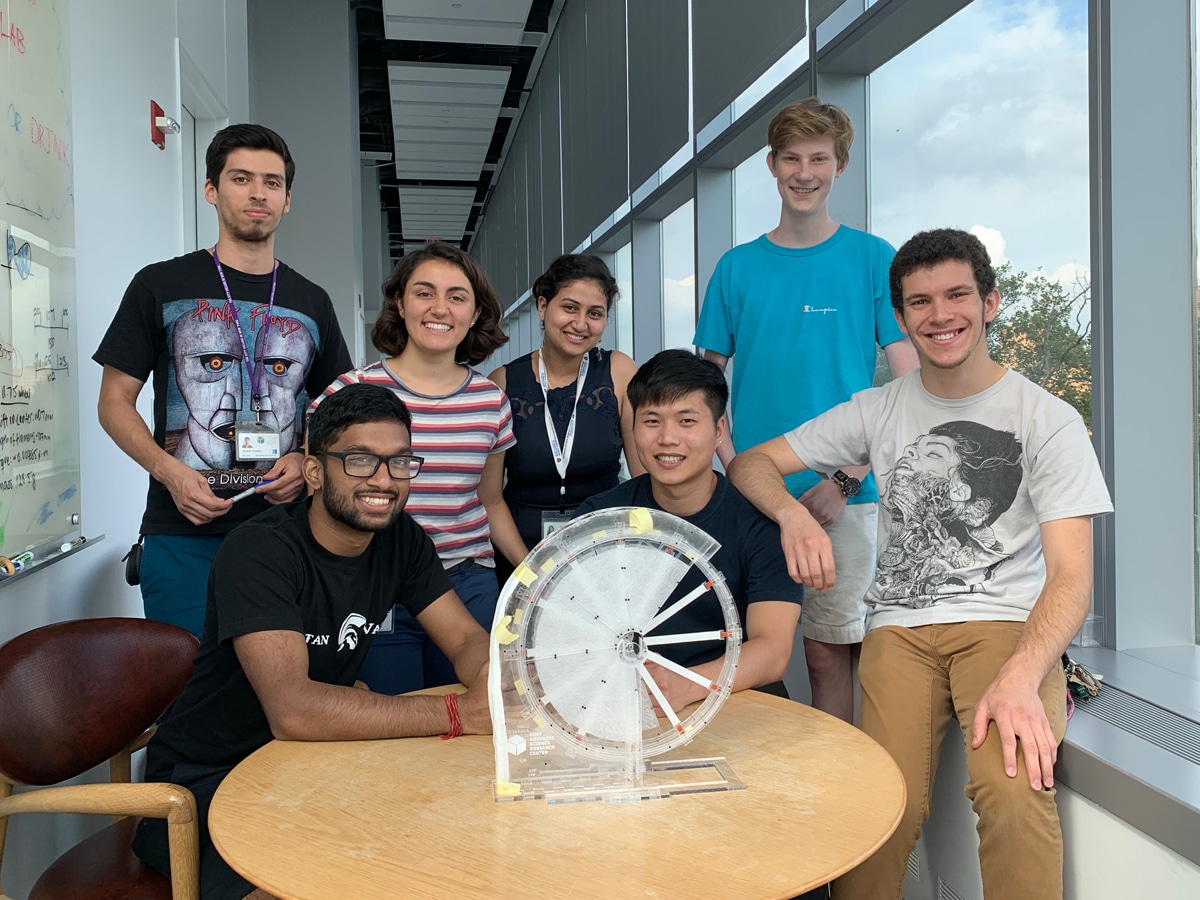Posted on August 15, 2019 in ASRC News, Nanoscience Initiative
Researcher Xi Chen has garnered a good deal of attention over the past couple of years for his work developing evaporation energy. In experiments, he’s used Bacillus spores to power small engines and lighting devices. The spores swell and contract in response to changes in relative humidity, and when they are strategically placed on a device this action initiates an ongoing shift in the center of mass causing movement that generates power.
Chen — an assistant professor with the Advanced Science Research Center at The Graduate Center, CUNY’s Nanoscience Initiative and with The City College of New York’s Chemical Engineering program — recently received an Office of Naval Research award to develop learning kits based on his evaporation energy harvesting technique. This summer, a group of CUNY undergraduates and high school scientists worked at Chen’s ASRC lab developing the kits, which will be used to teach New York City students about biomaterials and evaporation energy and get them excited about STEM in general.

“The students are using parchment paper — a natural cellulose that is water responsive — and a few other inexpensive items to create boats that are powered by evaporation,” said Zhi-Lun Liu, a chemical engineering Ph.D. student who is leading the group in their efforts. “This fall, we’ll use the kits as a part of our activities at the ASRC’s IlluminationSpace science education center. They’ll help our volunteers teach New York City students how water-responsive biomaterials can be used to harness energy.”
“Projects like this are exciting because they help us get the public interested in advancing science in its earliest stages, and it also provides a platform for getting diverse groups of young people interested in STEM careers,” said Chen. “This particular area research could have far-reaching applications for naval technology such as powering Navy surface ships and enabling ocean surveillance systems.”
